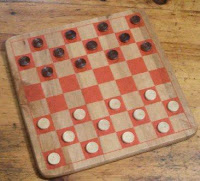
1. If you want a summary of the expectations in mathematics, here is my personal favourite. It is called Ontario Curriculum Tracking Templates. Click on the link, and you will see all the expectations in mathematics in point form for grades K through 8.
2. Here is the link to the Ontario Ministry of Education, Elementary Mathematics Curriculum, in pdf format.
3. Here is the link to the Kindergarten Curriculum into which mathematics is incorportated. It is also in pdf format although there is a plain text version available.
4. The Ministry of Education has exemplars on line. They are examples of children's work at the four different levels in the different strands. Here are links for grade one, grade two and grade three. Other grades are also available on this site.
5. The ministry has published an early math strategy in 2003 to encourage problem solving based mathematics and to promote cooperation and sharing amongst mathematics teachers in the spirit of the Japanese Lesson Study method of curriculum development. Here is the link. In 2004 the ministry published a similar documument for the junior grades.
6. E workshops: The ministry of education has hosted documents and on-line videos to explain different aspects of the curriculum in elementary schools. These include numeracy.
7. Illuminations: This is the National Council of the Teachers of Mathematics site. It is an American site, but it has numerous links and ideas for elementary mathematics teachers.
8. The Hamilton-Wentworth District School Board has a very good numeracy site. Stop and visit here for they have numerous resources for both parents and teachers. In particular I am impressed with the plans that they have for teaching mathematics for grades one through eight. These plans suggest what to teach each term, the big ideas that you can address in so doing and the related curriculum links. They also suggest what resources to use, such as the relevant chapters from common textbooks which is a great help in planning. Here are the plan for grade one, grade two and grade three. If you are a junior or intermediate teacher you will also find your grades there.
9. The Upper Canada District School Board maintains a site called Aftermath with many useful links for literature, curriculum, online resources and etc, although I have the impression that it has not been updated for a little while as there are some dead links.
10. Proteacher: This is a special portal and search engine for teachers. There also links to blogs, discussion boards and even online chats if you need support and ideas. It is used by English language teachers around the world.














